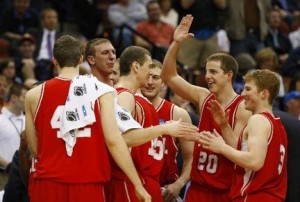 Over the years, EBL readers have appreciated our occasional reports on scientific evidence on popular sports. Indeed, during Cornell’s epic run for the NCAA tournament, we reviewed very interesting research on the “hot hand” in basketball, one of our most viewed posts. We’ve also written about other factors that determine a team’s success and the science of the Olympics.
Over the years, EBL readers have appreciated our occasional reports on scientific evidence on popular sports. Indeed, during Cornell’s epic run for the NCAA tournament, we reviewed very interesting research on the “hot hand” in basketball, one of our most viewed posts. We’ve also written about other factors that determine a team’s success and the science of the Olympics.
Well, we like to keep our readers up to date, and there’s new information on the “hot hand” findings. And there is new research – recently summarized in the New York Times – that suggests the idea of a hot streak is more complex than we originally thought. And that, yes, at times, players and teams can build on past successes.
The concept of winning streaks is a topic that has piqued researchers interest for decades. Since the 1980s, psychologists have been analyzing sports statistics to determine whether players really experiences hot streaks. Those original studies found that, no, players were not statistically likely to experience hot streaks. For example, one study by researchers and Stanford and Cornell university’s found that basketball players who scored were not statistically more likely to make their next basket.
But a recent sweeping analysis by researchers at Yale University looks at an entire season of free-throw data from the N.B.A. In it, researchers found that players did have statistically significant hot periods over the course of a game or two, when they would sink more free throws than mathematically expected. This didn’t necessarily apply to consecutive shots in a row, but to all of their free throws over the course of several games.
Likewise, a second study found that bowlers experienced similar streaks: After a high-scoring game, there were more likely to throw more strikes, but not necessarily in consecutive frames.
Clearly, the topic is a complicated one – with a wide variety of variables that apply to specific players including whether a team has the home-court advantage, dynamics among players and opponents and even diet and sleeping patterns. What is clear is that there is some psychological benefit to performing well that tends to lead to future success.



Speak Your Mind